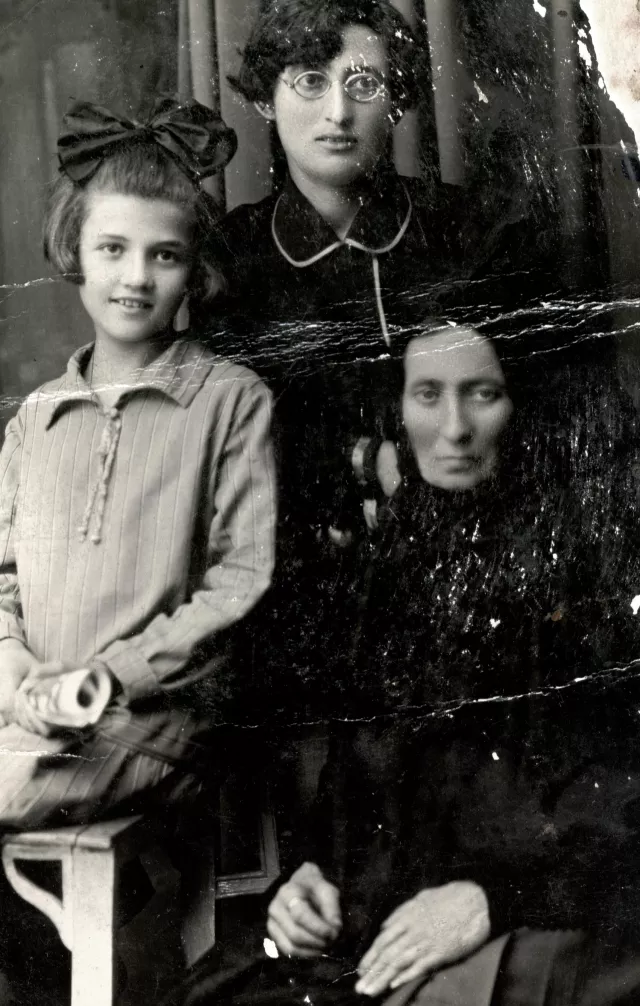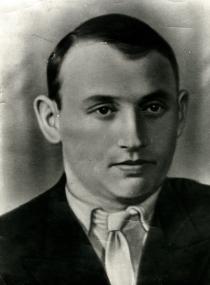Galina Barskaya, her aunt Olga Barskaya and her mother
That’s me sitting in a children's chair. Aunt Olga Barskaya is the one wearing glasses. Standing is my aunt's mother, whom I called grandmother.
The photo was taken in 1924 in Kremenchug.
I was raised in the family of my uncle and aunt. After her husband died, my aunt found a job at the same butchery where my father was working. She also was working with preparing meat for sausages. For her, delicate and tiny, it was very hard. The workers stood on a cement floor in heavy boots because the floor was full of water for washing meat. To get to work she had to walk across the whole town because there was no transportation. She left early in the morning and came home when it was dark – almost night. I remember when she took off her boots after work she would always pour out water from them. Her life was very hard. But there was no way out – she had to provide for her family.
My aunt owned a small house on Pushkinskaya Street, in the yard. The house was tiny – two small rooms. The smaller room served as a kitchen. The toilet was outside and was shared by several neighbors. Water was to be carried from a well two blocks away. I was seven or eight years old and I had to drag buckets of water home because my aunt would come home frozen, with wet feet, so she needed water to wash and to cook.
There was a house facing the street, where another Jewish family lived – a shoemaker and his numerous kids. I remember it was always dirty in his house. But in our home it was always clean. My aunt’s mother lived with us and she always cleaned the house and kept everything in order. Aunt’s mother – I called her grandmother – lived in the room that was combined with the kitchen. I don’t remember what her name was – I always called her grandmother.
In the same room two brothers of Aunt Olya lived as well. Her elder brother’s name was Nachman; her younger brother’s name was Avrum. They were adults. In the second room my aunt’s sister Leah, whom we called Leika, and I lived – sleeping on a bed made of wooden boards. Nacham also had an elder sister, but she got married and lived separately.
The family was very poor. We all lived at the expense of Aunt Olya’s salary. Her younger brother Avrum was handicapped – his one arm was paralyzed and hung in a black sling. I don’t know whether he received any pension. But since early childhood he got used to go to the market, meet peasants who came to sell things and guard their goods when they had to go somewhere. Avrum was a very honest person, and peasants highly respected him and trusted him. For his guarding they gave him some of their goods – vegetables, potatoes, sometimes even meat. That’s what kept us living.
Her second brother, Nachman, had no permanent job. Sometimes he helped load goods at the market. Then he got married and moved to live with his wife.
Aunt’s sister, Nechama, lived a little further on the same street. She had a tiny room and a very small kitchen, but her apartment was also very clean. Her sister Leah was single. She never worked outside the house – she helped Grandmother look after the house.













